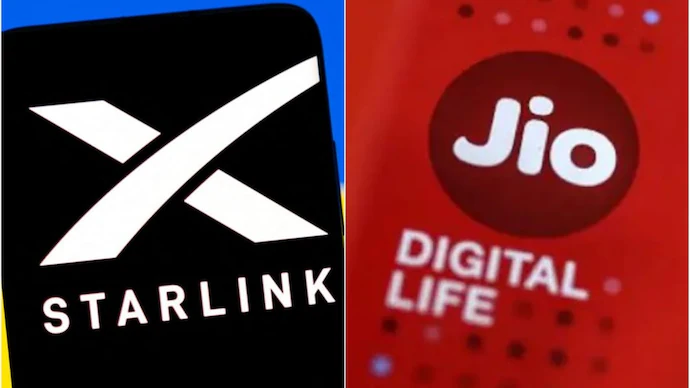Reliance Jio is attracted to the idea of an auction of the spectrum, while on the other hand, the Starlink and Kuiper services of Elon Musk and Amazon respectively seem to be the big fish in the pond.

On Tuesday, Jyotiraditya Scindia, the Communications Minister, stated that India will designate satellite spectrum through an administrative mechanism and then the price will be set by the Telecom Regulatory Authority of India (TRAI). This change is the result of the government’s decision to lower the loops and more easily roll out satellite internet services around the country.
The minister’s announcement was the same day Elon Musk was reported to be preparing to bring his Starlink internet service to India to compete. Musk’s entry is anticipated to be a major disturbance among the country’s current telecoms, such as Reliance Jio of Mukesh Ambani and Bharti Airtel of Sunil Mittal.
As well as Starlink, other satellite firms transitioning to India are demanded to provide internet services and they will date back the challenge from established telco players like Airtel and Jio. Upon satellite internet being the pivotal technology to move to the far reputed locations, the criterion for market dominance will be the reconfiguration of the digital space of India.
The authorization of satellite spectrum through the administrative route, in place of an auction system like teleporting, is targeted at the faster network of satellite-based internet connections. Nevertheless, the cost pricing mechanism will be decided by the TRAI, which will ensure the fact that the satellite as well as the operators of the telecom industry will be in fair competition.

In a nutshell
- Telecom Regulatory Authority of India (TRAI) has issued a discussion paper on the pricing regime for satellite broadband services, said Telecom Minister Jyotiraditya Scindia.
- Satellite Broadband Race: Major global players like Starlink (SpaceX), Amazon’s Project Kuiper, Eutelsat-OneWeb, Telesat and Jio-SES are competing to secure permits to launch satellite broadband services in India.
- Telecom Operators’ Position:
- Jio and Airtel call for equal treatment in terms of regulation of telecom and satellite operator.
- Airtel’s View: Satellite players must be made to buy the spectrum like the telecom operators and pay the license fee.
- Jio’s Response: Jio is stating it is ready to go to court if a level playing field is not set up.
- Satellite Companies’ Position:
Starlink’s Argument: Elon Musk’s Starlink feels satellite communication airwaves should not be auctioned as they are shared and thus opposed the logic presented by the telecom operators.
- Industry Tension: The telecom and satellite industries compete on questions of spectrum pricing and regulation, always pushing for the right policy that could be conducive to their well-being.
Speaking to reporters at the India Mobile Congress 2024 here, Scindia said: “Telecom Act of 2013 explicitly mentions that satellite communication spectrum will be allotted administratively… That does not, however, mean (said) spectrum is free. How much that price is and what the formula of that pricing will be decided by Trai. The minister said the paper has already been circulated to the regulator The regulator… has been mandated by the constitution to determine what that administrative pricing is going to be,” he said. “With the best guys on it, they will come up with ample pricing that we should adopt if for no other reason than [it’s] being dispensed in an administrative context…”
The Indian Space Association on Wednesday said that the government’s clear stance on the allocation of Satcom spectrum based on an administrative basis is a major step in connecting the remote and unserved areas and all of the inclusion in Digital India.
Indian Space Association’s Director General AK Bhatt said that the final decision awaits the satellite industry based on telecom regulator Trai’s consultation paper on the costing of the spectrum.
CONCLUSION
The move mentions facilitating the entry of global satellite-based companies into Indian market over India’s remote and under-service regions to provide internet services. This will be a shot in the arm for companies like Starlink, Amazon’s Project Kuiper and Jio-SES which are expected to be key beneficiaries of this new allocation process.
In opting for an executive approach, the government has set itself up to enable swifter rollouts of direct-to-home satellite internet services that will likely be crucial in shaping India’s digital destiny.




